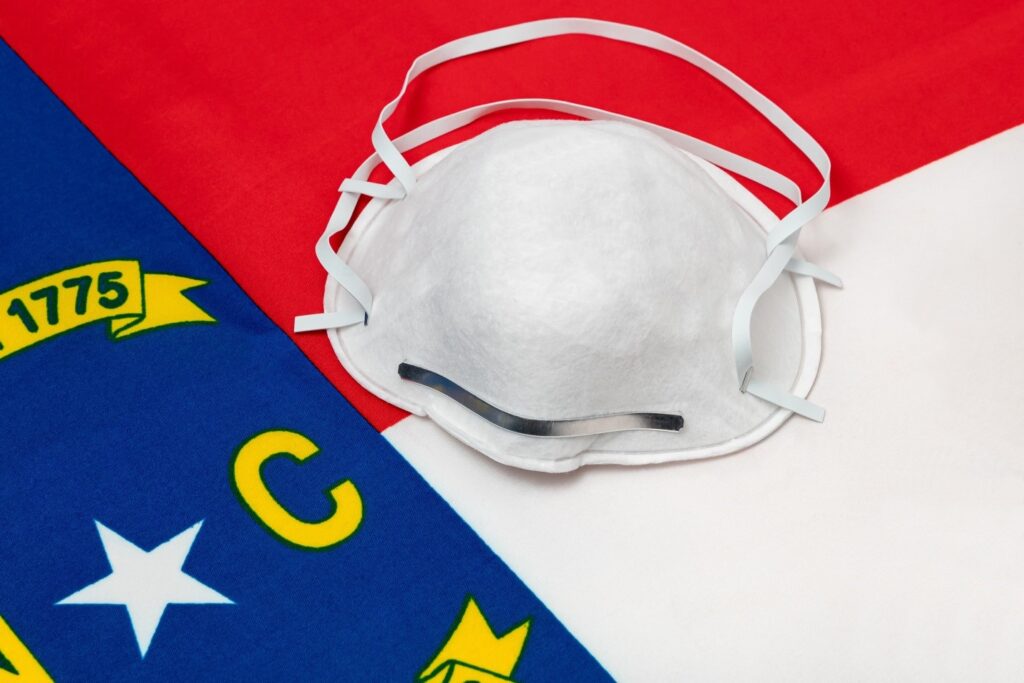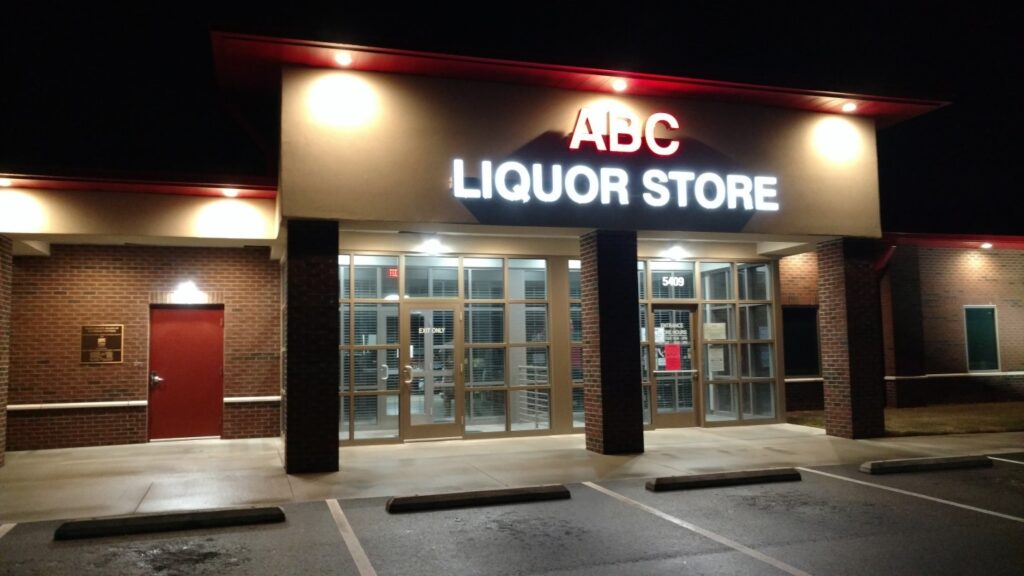
CAL Staff
Christian Action League
August 28, 2020
It was Plato who once said, “Strange times are these in which we live when old and young are taught falsehoods…And the person that dares to tell the truth is called at once a lunatic and a fool.”
The Christian Action League’s primary purpose as a public-policy organization is to engage the culture by addressing its social and political issues with God’s truth, as found in His Holy Word, the Bible. At times, this inadvertently provokes the secularists, the humanists, the Marxists, the liberals, the leftists, etc. to call us lunatics and fools. The League, however, is undauntingly committed to its motto, “The only lasting cure for evil and injustice is Christian action.”
The Christian Action League, based in Raleigh, NC, has a full-time lobbying presence in the North Carolina General Assembly.
Report
In keeping with its mission for over 70 years, here are highlights from what the League addressed during the 2020 Short Session of the State Legislature.
The 2020 Short Session was possibly the most unique session in North Carolina history because of the coronavirus crisis. The government lockdown, social distancing, and other health protocols made it challenging for lawmakers to carry on the people’s business as usual. Many of the committee meetings took place with House and Senate members attending in person, while others joined the meetings virtually. There were still sessions held on the House and Senate floors, although some lawmakers had to log online to attend. New rules allowed each lawmaker ample time to vote on proposed legislation. Nearly all lobbying of legislators by the Christian Action League had to be done via telephone conversations or email correspondence.

Pro-Life
This year there were no legislative efforts on behalf of the unborn. Past years’ experience during Democratic Governor Roy Cooper’s administration has consistently shown that any new pro-life legislation which passes the Republican-dominated House and Senate is quickly vetoed by him.
There were, nonetheless, pro-life actions taken by the League outside of the state legislature.
In March, the Christian Action League joined the NC Family Policy Council, the NC Values Coalition, Concerned Women for America of NC, NC Faith and Freedom Coalition, and NC Right to Life, in an official letter to Gov. Roy Cooper. The letter called upon the state’s chief executive to recognize abortions as “non-essential services” and to put them on hold just as the state had all other elective surgeries during the pandemic.
The State Secretary of Health and Human Services had directed all hospitals and surgery centers to cease elective and non-urgent procedures. Nevertheless, officials made it clear that abortion clinics would not be asked to close.
“While surgery centers postpone elective and diagnostic procedures, abortion centers are churning out surgical and chemical abortions and putting women, especially the poor, at risk,” the letter read. “Their continued operation depletes sorely needed personal protective equipment and leads to complications that will further overwhelm already overextended emergency rooms.”
The letter continued: “Furthermore, the abortion industry is putting women at risk of infection with COVID19, as well as its own employees by remaining open during this time of unprecedented peril. Many of the clinics in North Carolina see between 25 and 40 patients per day, far exceeding the recommended guidelines of no more than 10 people gathered in any one place.”
The letter also called on Cooper to halt abortions unless there was “a true medical emergency making it necessary to avert the death of a pregnant woman or for which a delay will create a serious risk of substantial and irreversible physical impairment of a major bodily function.” It further requested that he urge abortion providers to donate their protective equipment and other medical supplies to be used for coronavirus response.
Unfortunately, but not unexpectedly, the Governor dismissed the letter.
Moreover, in March, when an infant was found dead at the Eden Inn in Eden, NC, the Christian Action League sought to highlight the tragedy as an opportunity to make the public and public officials aware of the states’ Safe Surrender law.
The Christian Action League was the primary proponent of the Safe Surrender law. The CAL diligently worked alongside lawmakers to help shepherd it to passage in 2001. The Safe Surrender law allows a mother who is overwhelmed or desperate to conceal her pregnancy and the child’s birth to hand over the newborn to a fireman, police officer, social worker, etc. When the infant is handed over within the first seven days, there are no questions asked and no risk of abandonment charges. From the law’s inception through 2018, which is the latest data available, at least 54 infants have been saved, and that number could be much higher say state officials.
Through various means, the Christian Action League took the death of the abandoned infant in Eden as an opportunity to remind lawmakers, local public officials, and the general public that such babies can and should be saved by making use of the law.

Drugs/Substance Abuse
The Christian Action League carefully monitored SB 315 – the North Carolina Farm Act, which passed and was signed by Governor Cooper in June.
Although the legislation was meant to prop up ailing family farms across the state, controversy swirled around the bill because it involved the issue of smokable hemp. The THC in the hemp farmed would have been relatively low, and, therefore, rather innocuous.
But law enforcement officials testified in committee hearings that passage of the legislation could result in the de facto legalization of recreational marijuana. Smokeable hemp and marijuana are practically indistinguishable, they said, whenever law enforcement personnel are trying to enforce the law against the use of pot.
When the measure passed, all provisions related to hemp had been removed.
To clarify that smokable hemp should not be allowed, certain lawmakers, later introduced SB 352- Amend NC Control Substances Act, which would have prohibited smokable hemp. That legislation, however, was withdrawn during a House Rules Committee meeting.

Gambling
The Christian Action League also monitored, as well as addressed SB 380-Clarify Felony Possess Sweepstakes Machines. Proponents of the measure argued its purpose was to make it difficult for Sweepstakes gambling operators in the state to continue their business.
Sweepstakes gaming parlors are illegal in the Tar Heel state, but many are still operating despite the law. The primary problem is every time a law passes, which bans sweepstakes machines, the sweepstakes industry changes their software for the games and asserts the new games don’t fall under the current prohibition. The result is some District Attorneys and law enforcement officers say that they are unsure whether or not to prosecute these gaming parlors.
SB 380 went through several drafts, which go as far back as last year. The latest version, which was taken up by the House Rules Committee in June, would have made possessing more than four sweepstakes machines in one location or a single machine that was not “autonomous,” a felony.
“Autonomous” machines are machines that aren’t connected online to the big internet companies, which can easily update them to circumvent the law. Proponents of the bill argued that the machines would remain illegal, and the proposal would provide law enforcement with a new and more effective way to enforce the law.
If an establishment had fewer than four machines, the proprietor would face a misdemeanor charge. If the establishment had more than four machines, the proprietor would risk being charged with a felony.
Rev. Mark Creech, executive director of the Christian Action League, said the bill seemed to confuse people more than it did clarify, even though the word “clarify” was prominently in the title.
Creech also said he was reluctant to come out forcefully against the measure.
“Some of my closest and most trusted public policy colleagues and legislators supported it,” he said. “But I felt that there was a skunk in the woodpile. When you see high-powered lobbyists in the room standing up during public comment to support the bill, and you know they couldn’t care less about banning sweepstakes, that they’ve always got some business angle to whatever they’re doing, something isn’t right. When a lobbyist for the company that makes the so-called ‘autonomous’ machines speaks before the Committee in favor of the bill, then something isn’t right.”
Creech’s testimony before the House Rules Committee raised numerous questions about the measure’s approach, which seemed to precipitate enough doubt among lawmakers to cause the legislation to fail in a tie vote.
In reporting on what happened before the Committee to a church in Jacksonville, Creech said: “I wish I had time to tell you the ways that people sought to keep me out of that Conference room and the way our Lord made certain that I was to speak. Such a moment as that one shows how strategic our position in the legislature can be when some critical issue is on the table.”

Alcohol Policy
The Christian Action League supportedHB 1082 – ABC Administrative Penalties/PED Study. The bill would require the ABC Commission to develop a written policy regarding actions it may take against permittees for ABC law violations. The policy would require detailed guidelines to be followed by the Commission in determining which action to take for a first or repeat offense, when it is appropriate to deviate from the guidelines, the justification for differences in the severity of actions taken for similar violations, and the justification for dismissing an alleged violation case.
It would further mandate that the Commission post the policy on its website and annually post specified information regarding alleged ABC law violations.
HB 1080 passed the House, but stalled in the Senate Rules Committee.
The Christian Action League also vigorously opposed a provision in the House COVID relief bill, HB 1043 – 2020 COVID Relief, which would have allowed for what was called curbside cocktails.
Proponents for the measure, such as the North Carolina Restaurant and Lodging Association and the John Locke Foundation, pushed for the provision to be included. It would have allowed restaurants to sell two mixed drinks per takeout meal in sealed lidded cups until the state’s stay-at-home order was lifted.
In his lobbying against the measure, Rev. Creech explained the obvious adverse outcomes — from increases in dangerous consumption levels, DWIs, and accidents to rising emergency room cases and hindered immune systems, that would likely come from broadened mixed-drink availability.
“Even if the pandemic were not a part of the equation, the curbside sale and delivery of liquor drinks is outrageously irresponsible on many levels and should never pass, not even be entertained,” said Rev. Creech.
The egregious provision was removed from HB 108 when it reached the Senate.
Two other significant actions involving alcohol policy in North Carolina took place back in March of this year. The Eastern Band of Cherokee Indians passed their version of the Brunch Bill, which allows for alcohol sales on Sundays before noon – for which the NCGA passed state-wide legislation in 2017. And the North Carolina ABC Commission moved forward on its permanent rules for liquor tastings in local ABC stores – for which the NCGA passed legislation last year.
Although he said he knew the dye had already been cast, Rev. Creech, spoke to the ABC Commission during its August meeting to register for historical purposes, he said, the League’s solemn warnings about liquor tasting events at ABC stores.
Creech told the Commission that liquor tastings at local ABC were like a poison pill that could ultimately bring about the downfall of the state’s control system for spirits.
“Liquor tasting events change the core objective of an ABC store from the neutral stance of providing accessibility to an alliance between the stores and the spirits industry in the earnest promotion and sale of liquor,” said Creech. “ABC liquor stores cannot serve two masters. An ABC store is about the ‘control’ and ‘regulation of liquor’ sales, or it’s about profiting from liquor sales. It cannot be both. Profit may be an outcome, but it must never be part of the store’s core objective. If an ABC store is not solely about control, it has the potential to become just like any other private store based on profit. Privatization of liquor sales would be a disaster for public health and safety in North Carolina.”
Conclusion
The North Carolina General Assembly plans to reconvene on September 2. The NCGA met officially for the first time in 2020 on April 28 and has not met since July 11.
The House Select Committee, a large committee composed of 75 lawmakers from both chambers and chaired by Speaker of the House Tim Moore, is expected to address several COVID-related issues still impacting the state.
Lawmakers may also take up other matters. Therefore, this report is subject to revisions and additions before the year’s end.
This report does not include the numerous speaking engagements across the state by the League’s executive director, Rev. Creech. Nor does it include its many actions to educate citizen Christians about the multiple other issues of great moral import affecting our state and nation. To read about these, sign-up for the Christian Action League’s weekly e-newsletter, The Christian Action League Insider.
